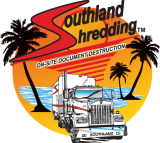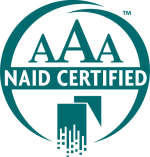
As the dust settles from another tax season, it’s time to start thinking about what to do with all those documents that were used to file your taxes. Most people are familiar with shredding sensitive documents before throwing them away, but it’s not always clear when and how exactly this should be done. In this blog post, we’ll dive into some common questions surrounding document disposal after tax season, also known as “tax shredding”. By understanding the importance of proper document disposal and knowing the answers to frequently asked questions, you can ensure your personal information stays safe and secure while also staying compliant with any legal requirements.
What Is Tax Shredding?
Tax shredding refers to disposing of old and unnecessary documents related to your taxes. This includes receipts, bank statements, pay stubs, tax returns, and any other financial records that are no longer needed.
Why Is It Important To Shred Tax-Related Documents?
Shredding tax-related documents is crucial for several reasons:
Prevents Identity Theft
Tax documents contain sensitive information such as Social Security numbers, bank account numbers, and other personal details that identity thieves can use.
Compliance With Regulations
Properly disposing of financial records is necessary to comply with government regulations such as the Fair and Accurate Credit Transaction Act (FACTA) and the Health Insurance Portability and Accountability Act (HIPAA).
Saves Space
Shredding old documents helps free up space in your home or office, making it easier to stay organized.
Reduces Risk Of Fraud
By shredding documents, you eliminate the risk of someone finding them and using the information for fraudulent purposes.
Protects The Environment
Shredding documents instead of throwing them in the trash helps reduce waste and promotes recycling.
When Should I Shred My Tax-Related Documents?
The recommended timeline for shredding tax-related documents depends on the type of document. Here are some general guidelines:
- Tax returns and supporting documents: Keep these records for at least 7 years after filing in case of an audit.
- W-2 forms and 1099s: Keep these records for at least four years after filing.
- Receipts and other financial documents: Keep these records for at least three years, or longer if necessary, for tax purposes or warranty claims.
How Should I Dispose Of My Tax-Related Documents?
Shredding tax-related documents is the most secure way to dispose of them. You can invest in a personal or office shredder or use a professional document destruction service. It’s important to ensure the shredding method you choose meets government regulations for data destruction.
Can I Keep Digital Copies Of My Tax-Related Documents Instead Of Physical Copies?
Yes, keeping digital copies of your tax-related documents is an option. However, it’s important to ensure that the digital versions are encrypted and backed up in a secure location. It’s also recommended that physical copies be kept as a backup in case of technical issues.
Are There Any Tax-Related Documents That I Should Never Shred?
Yes, there are certain tax-related documents that you should never shred, such as:
Original Tax Return Forms
These are the core documents filed with the IRS and should be kept indefinitely. Original tax returns are a vital record of your tax history and may be needed for legal or financial reasons.
Audit Reports
If you have undergone any tax audits, keeping the final report and any documentation provided by the IRS or your tax preparer pertaining to the audit is crucial. These documents should be retained indefinitely as they provide proof of the audit’s outcome and the information reviewed.
Major Financial Documents
Documents related to the purchase or sale of significant assets (like your home or investments) should be kept indefinitely. When calculating cost bases and capital gains or losses, these records are essential for tax purposes.
Legal Documents And Records Of Tax Payments
Documents such as divorce decrees, alimony payments, and records of tax payments should not be shredded. These documents can have long-term legal and tax implications.
IRS Notices
Any notices or letters received from the IRS should be kept indefinitely. These documents can contain important information about your tax account, adjustments, or decisions made by the IRS.
Keeping these documents secure and organized can protect you in the case of future disputes, audits, or when calculating taxes owed on the sale of assets. It is also wise to regularly review your document retention practices to ensure compliance and security.
Can I Shred Documents Myself, Or Should I Use A Professional Service?
While home shredders are an option, you might need to be a more powerful shredder for large volumes of documents or offer the level of security you need. Professional shredding companies guarantee complete document destruction with cross-cut shredding, ensuring your information is unrecoverable. Additionally, they often offer convenient services like on-site shredding or secure drop-off locations.
How Do You Choose A Professional Service?
When selecting a professional shredding service, there are a few factors to consider:
- Reputation: Research the company’s reputation and read reviews from other customers.
- Certifications and Compliance: Make sure the company is certified by a reputable organization and follows government regulations for document destruction.
- Security Procedures: Inquire about their security procedures, such as how documents are transported and stored before shredding.
- Pricing: Compare prices from different companies to ensure you are getting the best value for your money.
- Convenience: Consider the convenience of their services, such as on-site shredding or secure drop-off locations.
Conclusion
Properly disposing of tax-related documents is essential for protecting your personal and financial information. Shredding these documents helps prevent identity theft and ensures compliance with regulations. It’s important to follow the recommended timelines for shredding. Certain documents, such as original tax returns and audit reports, should always be kept. When choosing Southland Shredding Services, you can trust that your documents will be securely and effectively destroyed. Our certified team follows strict security procedures to ensure complete document destruction, offering convenience and peace of mind for our customers. Start shredding your tax-related documents by contacting us today!




